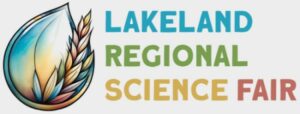Steps you need to take to register
See a similar, but different version of this as a PDF: LRSF2025_GettingStarted.pdf
Step 1. Decide if you want to participate
Are you available and do you have the time?
April 12th, 2025 – The day of the Lakeland Regional Science Fair, held at Portage College in St. Paul, Alberta.
From now until the fair, you’ll be brainstorming, planning, executing, and finally, presenting your project. So, before you leap in, think about this: Are you available on April 12th? Can you commit some extra time to work on your project in the upcoming weeks? Remember, science fairs are incredibly rewarding, but they do require extra time. It’s your call!
Are you eligible? See the page Eligibility and Participation
Do you know the rules? See the page Rules of the Fair
Step 2. Get on the science fair contact list
Putting yourself on our science fair list doesn’t mean you’re promising to participate – just that you’d like to be kept in the loop.
So, if you’re interested, click on the link below, answer a couple questions, are you’re ready for the next step.
Register by clicking here: http://eepurl.com/ibvaX5
Step 3. Choose a science fair topic
Picking the right topic for your science fair project might seem tough, but it’s the most exciting part! Let’s explore some important things to keep in mind when considering a topic:
- Do you really like the topic? Selecting a subject just because it seems impressive, but doesn’t genuinely excite you, might not yield great results. On the other hand, a topic that genuinely inspires you will help keep your interest and the work will feel much easier to do. It’s all about choosing something that sparks your curiosity and passion!
- Is the topic suitable for a science fair? You’d be surprised at how many things can make a great science fair project, especially if competition isn’t your goal, but there are a couple things any science fair project should have.
- A good science fair project should have –
- A topic that helps you or others learn more about science, and/or
- A question that can be tested and/or measured.
- Example of a bad topic: “How fast can my dirt bike go?”
- This might sound fun, and yes, you can test it. But, it won’t teach you or others much about any scientific topic.
- Example of a good topic: “How fast can my dirt bike go while using different types of fuel?”
- This is a testable question that might even help you and others understand more about how fuel combustion works!
- A good science fair project should have –
- Can you complete the project? Think about if you can finish your project successfully. Do you have enough time? Will you have the help you need? Is your idea safe and okay with your parents and teachers? Also, consider how much it may cost.
- Tip: If you need help from anyone, confirm they can help before you settle on a project.
- Before you invest too much time into an idea, ask someone else what they think! Nothing would be worse than spending hours on an idea, only to later realize that there was some reason why it wouldn’t work as a science fair project. So, ask a parent, teacher, or contact someone involved with the LRSF!
For more help choosing a topic, check out the following pages
- Project Ideas (Grade 4 – 6)
- Project Ideas (Grades 7 – 12)
- howtosmile – Their “Curated Topics” list has many activities suitable for young ages. While they don’t say “science fair projects,” almost every activity would make a good science fair project for the elementary age group.
- mySTEMspace – An interactive platform offering resources and activities for STEM learning, emphasizing creativity and innovation.
- Science Buddies – A helpful guide for students to select and execute science fair projects with background information and resources.
Step 4. Determine your project’s “Type” and “Challenge”
To help our judges evaluate your project, give out awards, and prepare for the Canada-Wide Science Fair (if you’re competing), we’d like you to chose a “Type” and a “Challenge” that best fits your project.
Read more about Project Types and Project Challenges.
Step 5. Determine whether your project requires ethics approval or consent letters
Some projects will require a bit of extra work to make sure everyone’s safe and you’re following all the rules. Generally speaking, if your project involves human participants or animals you will need to have your project reviewed by our ethics committee. Make sure you know what’s needed by going here: Safety & Ethics
Step 6. Register your project on the Youth Science Canada portal
This year we will be helping to register all projects.
If you did Step 2 and clicked Yes! when you signed up for the science fair contact list, someone will be in touch to help you register your project.
You’re good to go!
As always, if you have any questions, contact Chris at [email protected].
